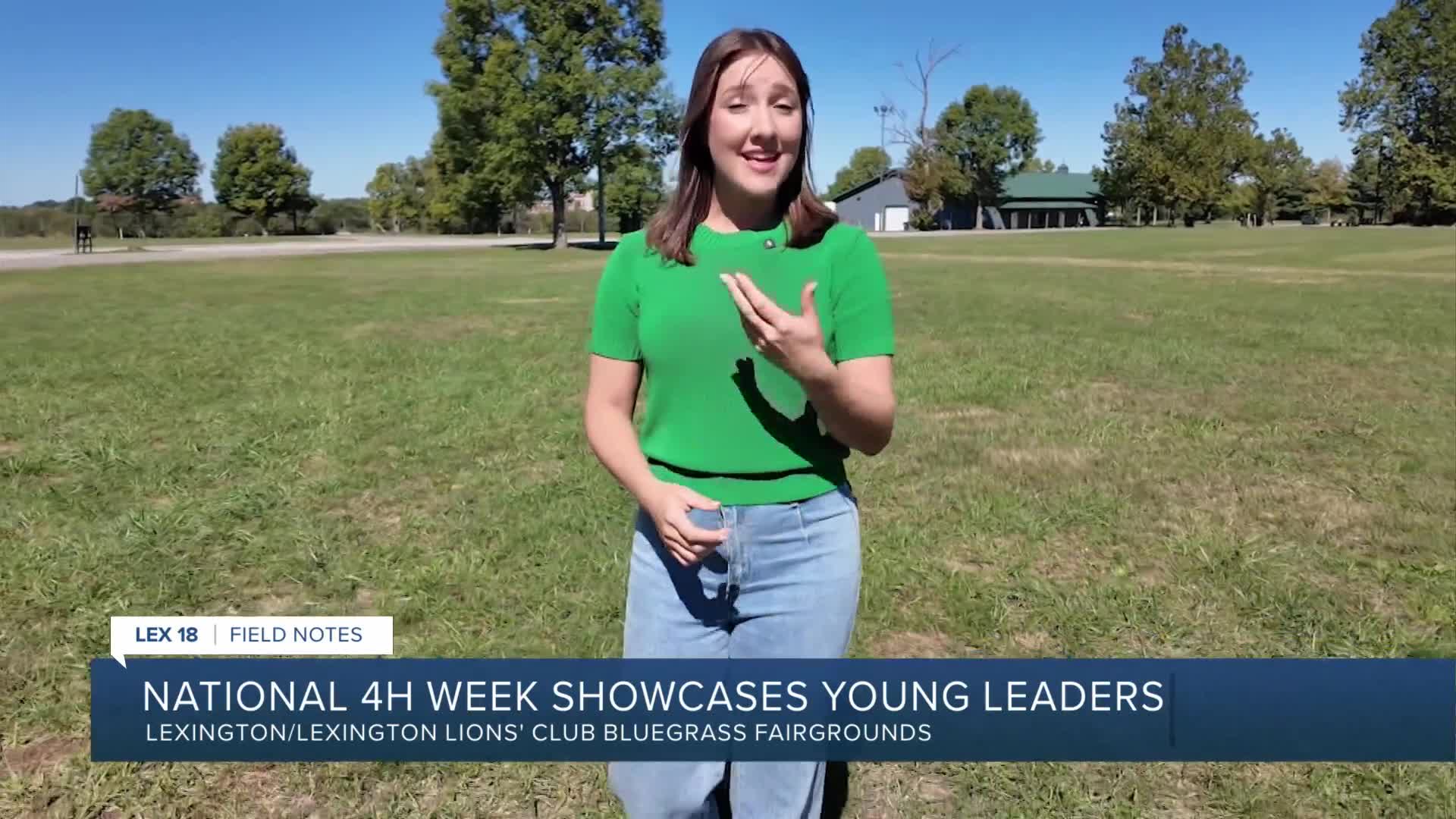(LEX 18) — A 12-year-old Fayette County 4-H member is proving that hard work and dedication pay off in the show ring. Her story represents the positive mark 4H leaves on its young members.
Liliana Robinette, a 7th grader who raises goats through 4-H, won 4th place in the state for her market goat at this summer's state fair. She also earned 1st place in her division for showmanship, which judges how well participants present their animals.
"It feels amazing, it feels like I've finally accomplished what I've been working on all year long," Robinette said proudly.
Like bodybuilders, livestock are judged on specific health, muscle and grooming standards. For young showmen like Robinette, mastering these requirements takes significant time, labor, dedication, and proper training routines.
After earning a top spot at the State Fair, Robinette is now preparing for her upcoming trip to the North American International Livestock Expo in November.
Through 4-H, America's largest youth development organization, kids like Robinette learn responsibility, hard work and compassion. The lessons taught and learned through 4H date back to the 19th century.
As 4H history tells it, in the late 1800’s, researchers found that farmers didn't readily accept new agricultural developments on university campuses, but found that young people were open to new thinking and would experiment with new ideas and share their experiences with adults. Therefore, rural youth programs introduced new technology and ways of thinking to farm communities.
Following suit, the roots of Fayette County 4-H date back to 1909, when local agricultural leaders challenged a group of boys to grow an acre of corn and report the yield. That became known as the Corn Club, which later became 4-H.
Today, 4-H serves youth in rural, urban and suburban communities in every state across the nation, with 6 million current members.
"We do all kinds of things in the county, not just livestock," explained Fayette County 4H agent Manda clark. "There's sewing, arts, communication, and leadership. We also take 350 youth to 4-H camp every year."
Aside from showing livestock, possible 4H projects include crafting, gardening, electric work, photography, robotics, public speaking, and more.
When Robinette isn't at the barn, she works on other 4-H projects like sewing or country ham, or catches up with her 4-H friends across the state.
Clark says there's something for everyone in the organization.
"That's the nice thing about 4-H, everybody has their own story. My story was 4-H camp, I started doing that when I was nine. For other people it can be communication, they did a speech at school and went on to state and love getting in front of people and talking to them, it can be country ham, it can be cooking, it's so many different things so you can find your little part of 4-H that you want to join," Clark said.
Families interested in learning more about 4H can reach out to their local extension office here.





